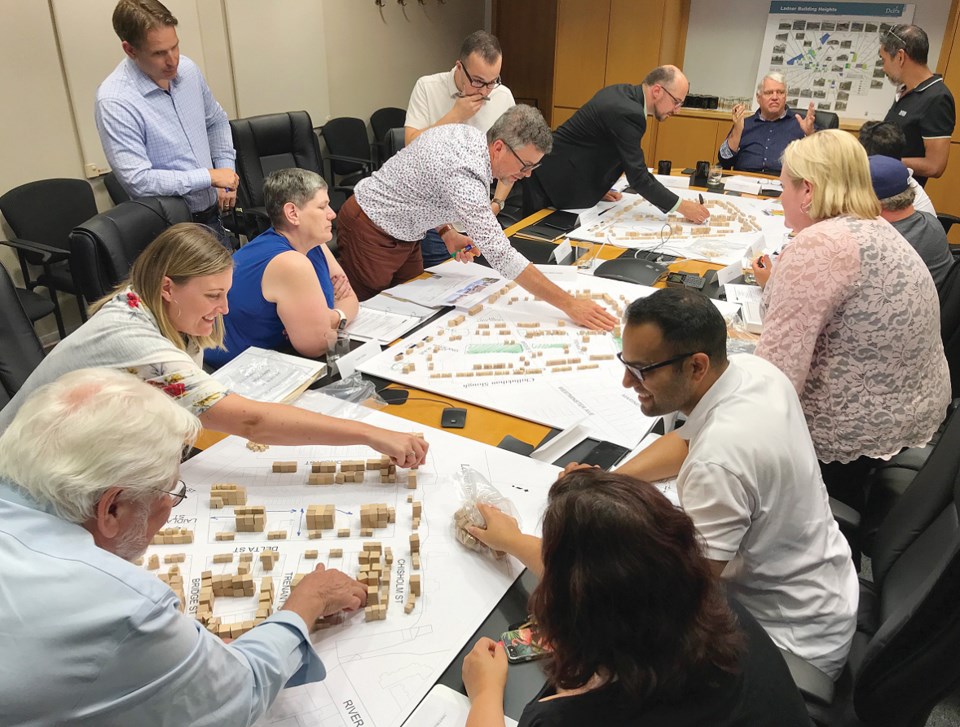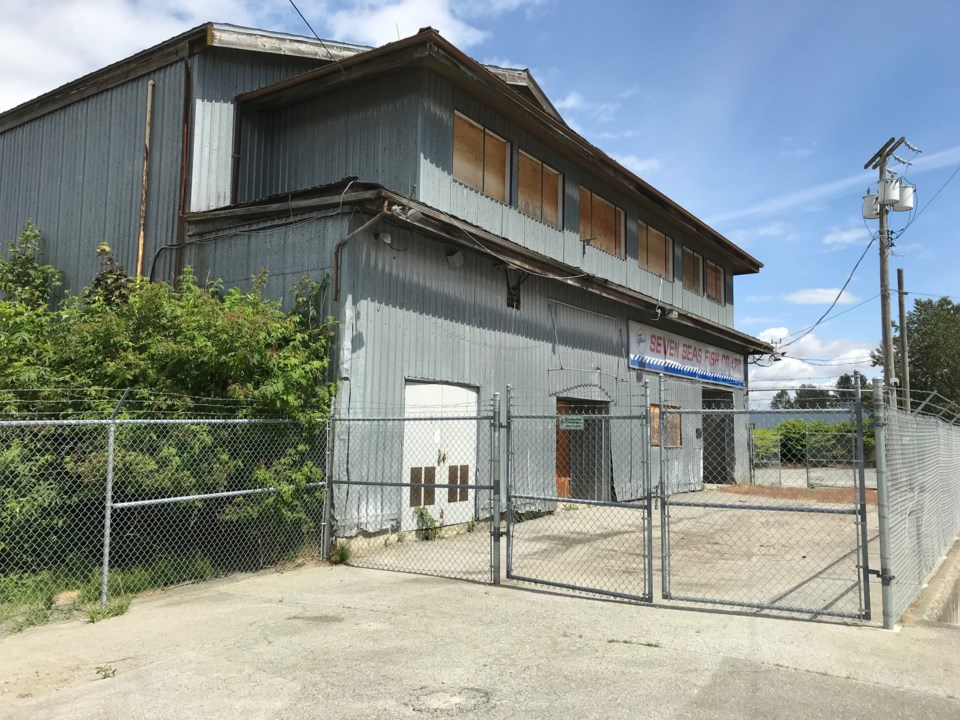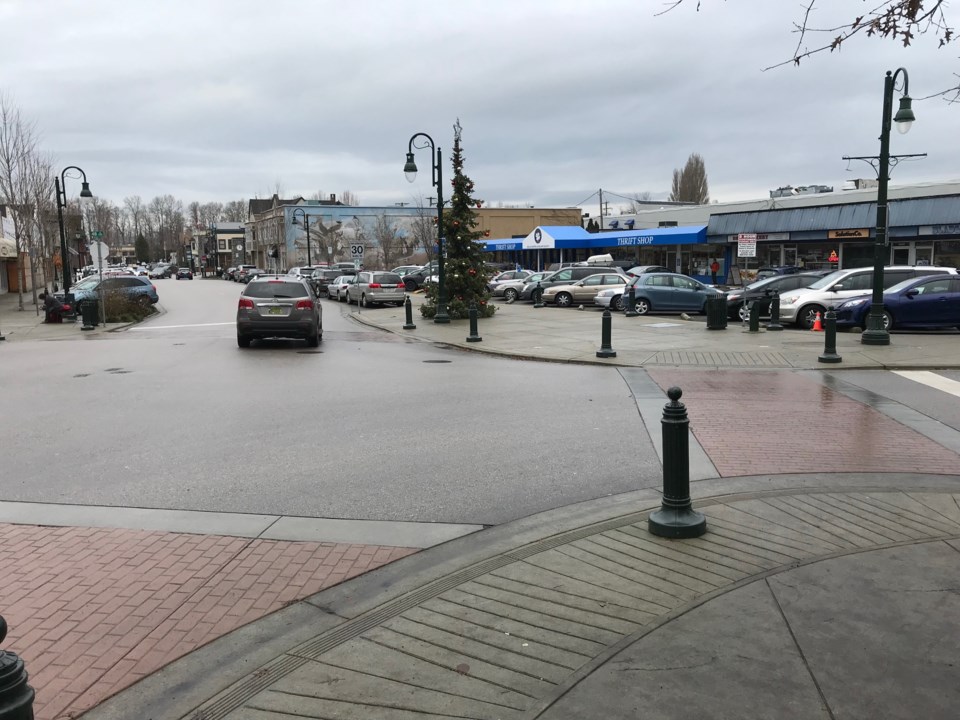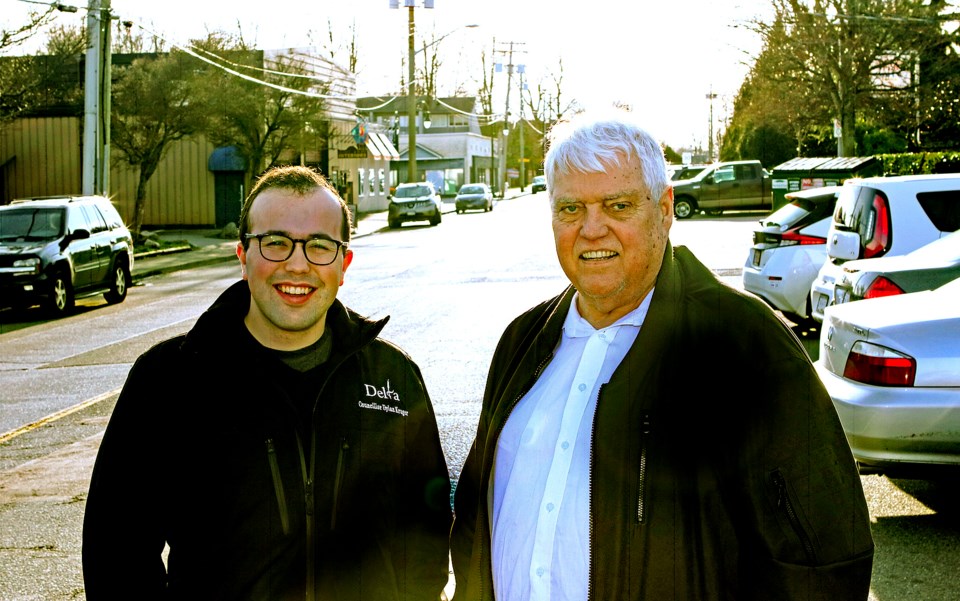Is this the document that finally changes the face of Ladner Village?
After several previous attempts at revitalizing the community’s historic commercial district failed to bring about desired change, the City of Delta created the Ladner Village Renewal Advisory Committee that submitted its final report to Delta council earlier this year.
It’s a comprehensive document containing an array of recommended actions that could see the village finally transform over the next few years.
“I think there’s more of an acceptance that concrete changes need to happen and the village can’t just stay the way it is,” said Coun. Bruce McDonald, chair of the committee, after it was made public.
“Businesses are facing competition from the new (Tsawwassen First Nation) shopping centre and it’s got to be made more of a magnet, both for people to live in and come and do business there. I was really pleased with our group and it was a very diverse group.”
McDonald and vice-chair Dylan Kruger, a fellow civic councillor, insist it’s not going to be another report that collects dust on a shelf.
“To summarize the whole thing, it’s respecting Ladner Village’s heritage and preserving it while also excitedly looking forward to the future,” said Kruger upon the report's release.
The committee came up with 35 recommendations, 15 of which have been identified as high priority actions to encourage a varied range of housing through smart densification, activate the waterfront for commercial development and public access, and support business sustainability through increased vibrancy.

The committee explored various density scenarios for Ladner Village and was told by representatives from the development community that current restrictions need to be eased
Among the recommendations, the committee has suggested redeveloping the Delta Museum Annex as a mixed-use site, seeking out opportunities to build a pedestrian/cycle bridge to Ladner Harbour Park and amending the Official Community Plan’s land use and height designations.
The biggest issue the committee felt needed to be addressed is increasing density and heights to allow more residential uses.
The report states that building terracing should be required along street edges so they maintain their village scale with three to four storeys maximum along the street and up to six storeys in some locations.
“What we’re saying in this report is we’re prepared to see some fairly significant changes to the village itself to try to encourage diversity and businesses and services and living accommodations,” said McDonald.
Kruger agreed, pointing to what has transpired with the redevelopment proposal for the former barber shop building on Delta Street. Although a two-and-a-half-storey mixed use building received civic approval years ago, the project is not seen as economically feasible by developers.

The city-owned seven-seas site has sat vacant for years as the city continues to press the government for longer term waterlot leases to attract developers
Building heights continue to be a bone of contention throughout Delta, including in Ladner Village where past attempts to increase density have been met with resistance.
The committee over the past year held panel discussions, including one with local architects to discuss visioning ideas and encouraging redevelopment, and one with local real estate and development experts to discuss development economics, marketing and incentivizing development.
Committee members also toured White Rock, Steveston, Fort Langley and New Westminster to see how they encouraged and guided renewal.
Among other things, the committee was tasked with looking at the best utilization of Delta-owned buildings, possible streetscape and harbour waterfront design concepts, branding, communications and marketing, as well as strategic incentives to attract development and policies to facilitate the renewal.

The city undertook a $6-million streetscape improvement project in the village four years ago
One of the high priority actions would see Delta consolidate and redevelop the former Seven Seas site and Spot on the Water Park along Chisholm Street to allow a combination of waterfront park, residential and commercial space. A restaurant, brew pub and similar uses are envisioned.
That’s not all that’s imagined for Chisholm Street as there’s a recommendation to study the possibility of converting it to a one-way street and adding the portion of the unused right-of-way to increase the developable area of lots on the north side. This approach would help address the ongoing issue of water lot leases that has stymied redevelopment efforts along the waterfront.
Among the other recommendations is the possibility of Delta redeveloping the Elliott Street parking lot into a mixed-use site with commercial uses at grade, residential above with the option for office space on the second level.
Another idea is to convert Elliott Street into a one-way street north of River Road to incorporate angled on-street parking.

To help support businesses, the longterm plan is to have more people living within the area
The committee, among other things, is also encouraging the use of patios and active nightlife to inspire overall livability in the village, lighting and other street furniture to maximize flexible usable space, and creative uses of streets and sidewalks.
Due to COVID-19 and its impact on businesses, the city went ahead with an expanded patio policy this summer.
The committee also concluded that two of the Delta-owned sites, the historic municipal hall and the city parking lot at 48th Avenue/Bridge Street/Laidlaw Street, should be retained and used for civic purposes and public parking, respectively. The upper level in the century-old municipal hall could potentially be used for artists.
As far as parking, which Kruger said will always be a challenge, the committee didn’t recommend building a parkade.
The report noted parking should be hidden behind buildings and internally on larger sites rather than being the focus on the street.
When larger sites redevelop, it’s recommended the city should explore the extension of existing lanes and opportunities for re-establishing historic streets.
As far as short-term measures, the committee recommended reducing parking limits from three hours to two hours and increasing bylaw enforcement.



